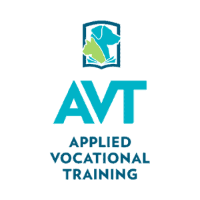
This role has a moderate level of AI exposure. AI can enhance efficiency for some tasks, but this job still relies on human skills and decision-making.
Explore all careersA Wildlife Carer cares for injured native animals and orphans until they can be released back into the wild, requiring flexibility and patience.
Get qualified to work as a Wildlife Carer with a course recognised across Australia. Speak to a training provider to learn more.













In Australia, a full time Wildlife Carer generally earns $1,200 per week ($62,400 annual salary) before tax. This is a median figure for full-time employees and should be considered a guide only. As you gain more experience you can expect a potentially higher salary than people who are new to the industry.
 Courses.com.au Team
Courses.com.au Team
The number of people working in this industry has remained stable in recent years. There are currently 16,500 people employed as an animal attendant in Australia and many of them work as Wildlife Carers. Wildlife Carers may find work across all regions of Australia.
Source: Australian Government Labour Market Insights
 Courses.com.au Team
Courses.com.au Team
If you’re interested in becoming a Wildlife Carer, consider enrolling in a Certificate III in Captive Animals. This course covers a range of topics including rescuing animals, applying first aid, rehabilitating native wildlife and caring for very young animals.
 Courses.com.au Team
Courses.com.au Team
Browse occupations related to Wildlife Carer



If you're passionate about wildlife and looking to make a difference in Tasmania, you might want to explore the Wildlife Carer courses in Tasmania. These courses are designed for anyone keen on starting their journey in animal care and conservation. Whether you want to work in rehabilitation or care for exotic species, the opportunities here are vast and fulfilling.
Currently, there are two notable beginner courses available for aspiring wildlife carers in Tasmania. The first is the Certificate II in Animal Care ACM20121, which lays the groundwork for those with no prior experience. This course covers essential skills and knowledge in animal handling, health, and welfare, providing a stepping stone into the wildlife care sector.
The second option is the Certificate III in Wildlife and Exhibited Animal Care ACM30321, which delves deeper into the specifics of wildlife care, making it an excellent choice for those who wish to specialise further. With hands-on training, you'll gain practical skills that are invaluable when working with wildlife.
These Wildlife Carer courses in Tasmania are delivered by reputable institutions, including the esteemed GYC, also known as Guilford Young College. This Registered Training Organisation provides comprehensive training and resources to ensure students receive a quality education tailored to the local environment. You can learn more about the provider by visiting their page here.